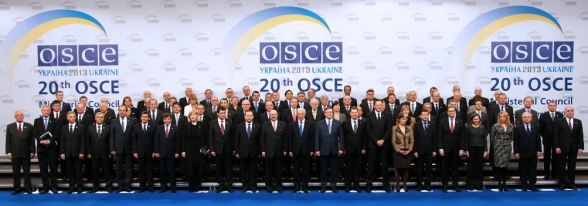On this occasion, the President of the OSCE Parliamentary Assembly commended the Ukrainian Presidency over OSCE, with emphasis on its dedication to resolving frozen and prolonged conflicts in the OSCE area, as well as the continuity in resolving the important issues in the field of all three OSCE dimensions, which would be achieved through good coordination of the Ukrainian presidency with the presidencies of the Switzerland and Serbia.
With regard to questions relating to current protests in Kyiv, Mr Krivokapić said: “I believe that the parliamentary democracy is the foundation of democracy, holding special importance in the young democratic countries. The message of the OSCE Parliamentary Assembly is that a strong parliament means stronger democracy and that the prerequisite for resolving the crisis is dialogue within institutions, because without establishing the trust in institutions, apart from them sometimes being dysfunctional or imperfect, that represents investment in the future. The models that various countries used to overcome a crisis are different, but each model achieved through dialogue is a good model.”
With regard to questions relating to possible OSCE involvement in resolving the dispute in Ukraine, Mr Krivokapić said: “If both the government and the opposition agree that it is necessary for us to participate in their dialogue, the OSCE Parliamentary Assembly will gladly answer that call, but I believe that Ukraine has the democratic capacity to deal with its own internal problems by itself. The protests are a fundamental right of the citizens, but without democracy there are no institutions.” “All international organisations have the same goal – to support democracy in Ukraine, and not one side or the other. The judicial institutions have a chance to prove themselves in implementing the rule of law and to receive support of the public, if they can demonstrate that they are not biased and that they are qualified to do their job”, Mr Krivokapić pointed out.
Today, Mr Krivokapić also had bilateral meetings with the ministers of foreign affairs of the following countries: Azerbaijan Mr Elmar Mammadyarov, Mongolia Mr Luvsanvandan Bold, Armenia Mr Eduardo Nalbandian, and Georgia Ms Maia Panjikidze.








